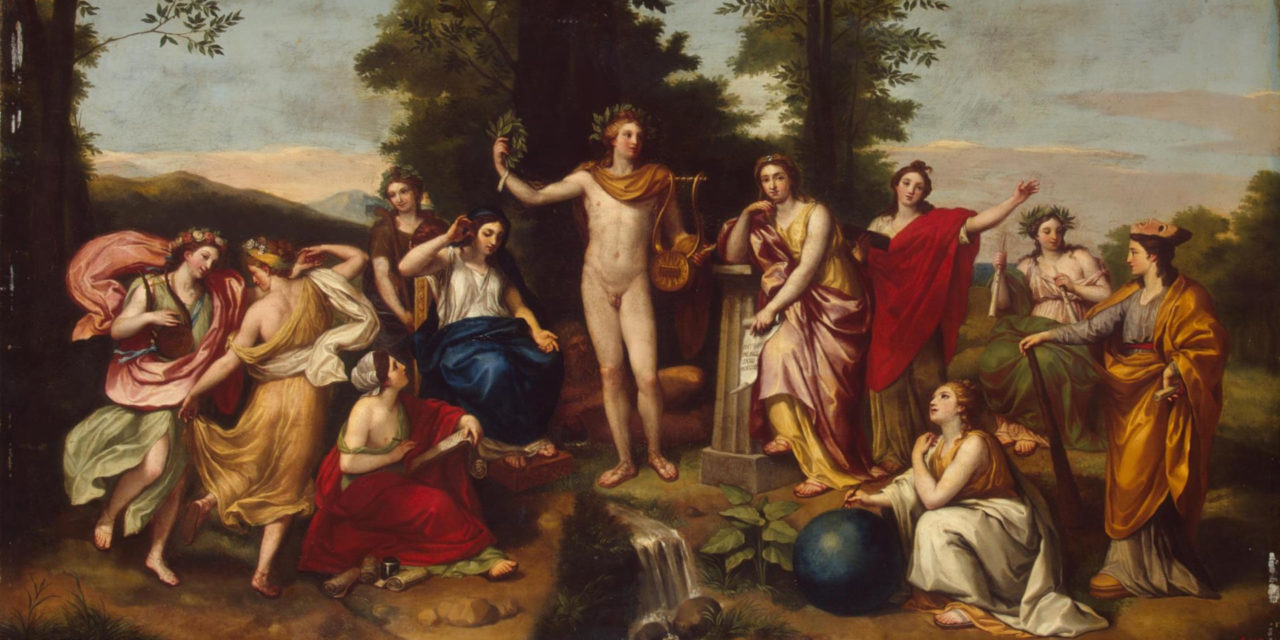Maria Rouphail – Five Poems
Parnassus
No one can will
the coming of the wind,
or coax the outbreathing spirit
from wherever it hides.
I’ve climbed
a long way to the top of this mountain.
Cypress, olive, and sprawling sky.
The twisted roads below me groping
the rocks are raptures of the eye,
but they are not the ravening wind.
My time-scarred knees and hips hold me up.
Ligaments and bones, their sockets and hinges,
the rasp and click of them over each steep stair.
I stop, listening to my heart fling itself hard
against the bars of my chest,
like the desire always for more
than summits, or triumphs of muscle,
or beautiful ruins: to make perfect songs
as once were heard in places like this.
Then let me be still, and wait for breath,
for wind and spirit to rise in me,
singing.
Sustain Me in the Dark Season
after Mongane Wally Serote
Sustain me in the dark season,
catch me as I fall toward brittle earth,
an ochre leaf in deepening autumn.
Sustain my scarecrow self,
prop me up in the hard wind scrabbling in the wheat.
Sustain me
when my land can’t breath for all the dust.
Sustain me
when weevils have eaten my fields, and starlings
bear away the husks.
Sustain me
when the river flows backward to the mountain.
Sustain me,
Throw open your door and let me sit beside you.
Let’s fling bridges across rocks and arroyos,
and bear toward the gulf? Improbable Heart,
sustain me.
Don’t leave me at the side of the road without a map.
Dawn in a Hotel Room in a Large City
Through the dark the sun is coming to the tall windows
on the twenty-second floor where I face south and west.
Lights along the streets river red and gold.
Buildings around me flash their glass faces,
coral and silver. In the gloaming,
the white moon glides west.
Out of rock and soil, water climbs five hundred feet,
and meets the steel tap on the shower wall.
It falls now, hard through my hair and hands,
falls on my shoulders and breasts.
I give my face to it.
I turn and turn in the warmth.
And it goes back to the ground, taking
whatever of me I have washed away.
Father, my body has made use of yesterday’s food.
I want to tell you
I thanked each thing that gave its life
so I could write these words.
I remember
when you looked on the city from a height like this.
It was dawn then, too. And you were dying.
Your face filled with the sun.
Teach me what you saw in that early light.
I’m still a small child on the way to school.
Portrait of My Cuban Father on His Birthday
(New York City, ca. 1940)
If sorrow—and surely there had been sorrow—
yet, not now in the irises cast slightly
askance the camera’s exploding light,
nor on the full lips, tongue-tipped moist and closed.
Here on the linen-finish page,
the young bachelor in black and white,
broad and clean-shaven under thick brows.
Time was when his naked feet and too-small britches said
You will never see adulthood—
But that was in the cyclone years, and he was
el Huracán, indigenous rain child, a black-eyed
squall of hunger and orphaned infant flesh.
Call him a grown man now, a triumph
of eye and mouth, tie and fedora, silk and wool.
Vindication on this dress-up day.
A Woman Feeding Birds
After she fills the feeder
full of food, the birds
fly in from near and far,
she knows not whence.
She steps back
to watch the frantic feeding
commence. Little feathered
and hollow-boned airframes fueling up,
male and female, and their young
manic with growing.
A manifold whirlwind at each portal
from which some of the seed
she has filled the feeder with
duly falls to the ground.
The squirrels,
on whom nothing is lost,
come clattering on their claws
down the tulip tree trunks, tearing
through mounds of brush
to rush their claim before
the chipmunks find out.
Huge, this hunger.
Inexhaustible, she thinks, as all the living
are fireboxes that must be tended and stoked
with something vast like love,
or the million hulled hearts of sunflowers
from meadows a thousand miles away.
Author’s Statement on Beauty
In addition to being writers, poets need to be readers of poetry. Like musicians, poets need to practice the “repertoire” by learning and knowing it. In steeping myself in genres from a variety of traditions (including and especially works in translation) and historical periods, I have evolved my own voice and sensibility. Currently at work on my third collection, I find that I have always been most “at home” in what I would call “plain song,” the direct, meditative, and often elegiac lyricism exemplified by the poetry of Czeslaw Milosz, Philip Levine, and Jane Kenyon. These poets (and others, to be sure) continue to teach me about beauty in poetic form.


